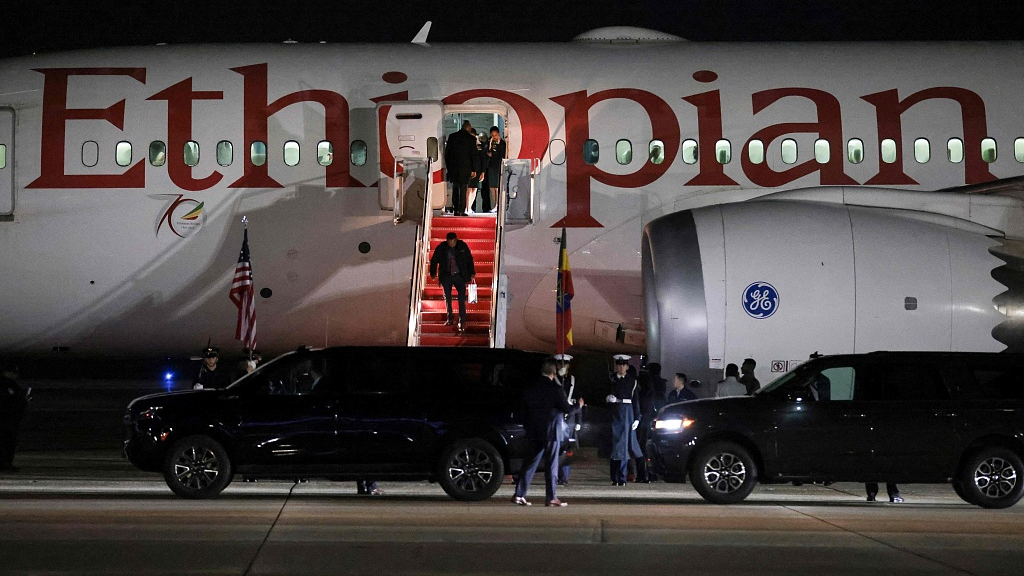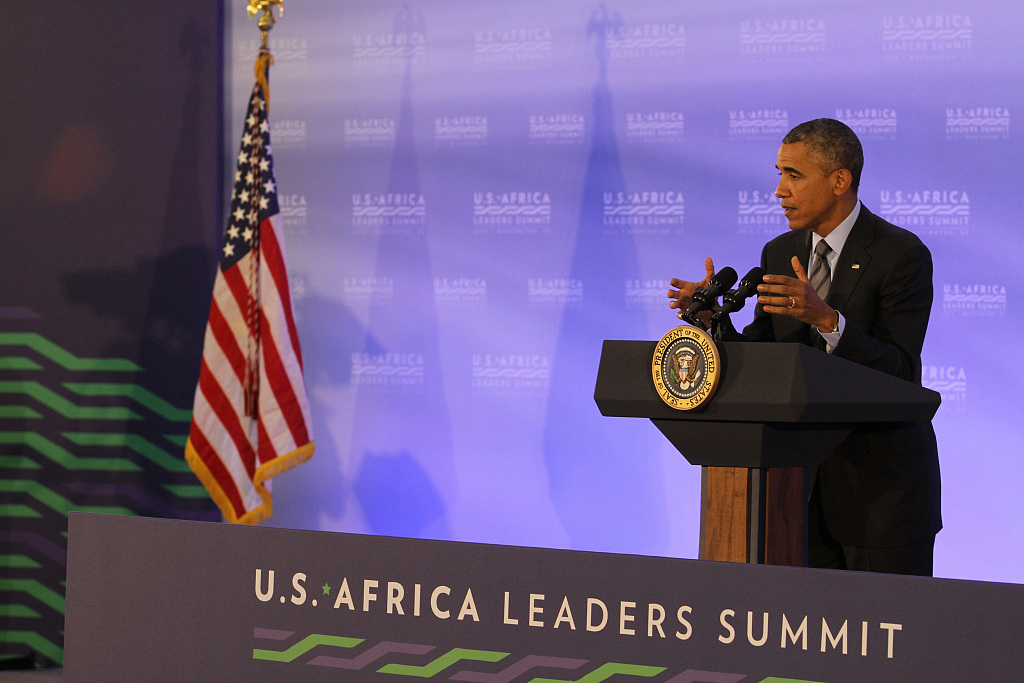
The delegation from Ethiopia arrives at Joint Base Andrews in Maryland, United States, to attend the U.S.-Africa Leaders Summit, December 11, 2022. /CFP
The delegation from Ethiopia arrives at Joint Base Andrews in Maryland, United States, to attend the U.S.-Africa Leaders Summit, December 11, 2022. /CFP
Editor's note: Anthony Moretti is an associate professor in the Department of Communication and Organizational Leadership at Robert Morris University. The article reflects the author's opinions and not necessarily those of CGTN.
President Joe Biden hosts leaders from multiple African nations this week. The U.S.-Africa Leaders Summit runs from December 13 to 15, and we should expect that the U.S. will promote the summit to enhance productive relations between the U.S. and Africa's 54 countries.
Skepticism abounds and with good reason.
For years, American presidents have spoken all the right words about Africa, but the reality is the continent has long been ignored by political and media elites. Unless crisis or conflict was evident, no one in Washington truly cared about Africa. Fighting off real and imagined enemies throughout Europe and Asia, particularly the Middle East, successive U.S. presidents basically shrugged when it came to improving the lives of the people who call the African continent home.
The lone exception was Barack Obama, who hosted the initial U.S.-Africa Leaders Summit in 2014. Obama visited three African nations in 2013, an effort heavy on symbolism (he was America's first African-American president) but also on message. Obama wanted Africa's leaders and civil society to know the United States wanted to make inroads in raising the standard of living and quality of life in Africa.

U.S. President Barack Obama speaks during his press conference after the U.S.-Africa Leaders Summit in Washington, United States, August 6, 2014. /CFP
U.S. President Barack Obama speaks during his press conference after the U.S.-Africa Leaders Summit in Washington, United States, August 6, 2014. /CFP
The inaugural summit was expected to be an integral step in that direction.
The politics of President Obama's visit to Africa and decision to host the summit cannot be forgotten. The Center for Strategic and International Studies has noted that the "United States already lagged behind its competitors and allies alike [when the first summit took place]. For instance, China, the United Kingdom, France, and others have been holding high-profile gatherings with African leaders for years, sometime decades, as in the cases of the Forum on China and Africa Cooperation and the Africa-France Summit, which happen annually and are hosted either in China, France, or an African country."
The timing of the sudden U.S. interest then was indeed peculiar, despite Obama's charm efforts. The initial summit took place roughly one year after China launched the global powerhouse known as the Belt and Road Initiative (BRI). The effort has generated support from roughly 150 nations from across the world, including significant endorsement throughout Africa.
China Global Television Network (CGTN) news anchor Beatrice Marshall reported a couple of years ago: "In 2009, China overtook the U.S. as Africa's biggest trading partner and Chinese foreign direct investment also grew by leaps and bounds... A paradigm shift started to re-engineer Africa and turn around its fortunes. This is because China adopted a different engagement model with Africa from which the West had pursued since 1885."
That strategy is one China has demonstrated across the globe: Delink trade relationships from politically charged issues. As an alternative to the Washington Consensus, the Beijing Consensus means that the internal dimensions of power in any country are of no business to the Chinese, who insist that forcing trade partners to agree to specific terms unrelated to economics does more harm than good.
Let's return to the BRI and look at how just one of its projects has benefited one African nation, Nigeria. The Abuja-Kaduna rail line has been in operation for more than seven years. Built by the China Civil Engineering Construction Company, the rail line is part of a larger project linking the nation's most important business centers. Last year, the country's transportation minister noted that the train service was generating approximately 300 million naira (about $675,000) for the country every month.
With the reality of BRI identified, let's again examine the U.S.-Africa Leaders Summit. The initial gathering took place in 2014. How many such summits have taken place since then? Zero. Donald Trump, who was president from January 2017 through January 2021, cared little about Africa, and we also must acknowledge that the global pandemic cut down on international events; however, is there any way the U.S. can legitimately claim to be a positive change agent in Africa if it continues to make sporadic efforts at engaging with the continent's leaders?
We know the continent is projected to almost double in population size by 2050 and that means young adults are scanning the horizon and seeing consistent attempts by China to invest in win-win trade projects instead of hosting occasional symbolically heavy events. This year, it will be vital to see whether the U.S. maintains a 20th-century mindset about Africa, or if it is prepared to consider modern opportunities to complex challenges.
(If you want to contribute and have specific expertise, please contact us at opinions@cgtn.com. Follow @thouse_opinions on Twitter to discover the latest commentaries in the CGTN Opinion Section.)